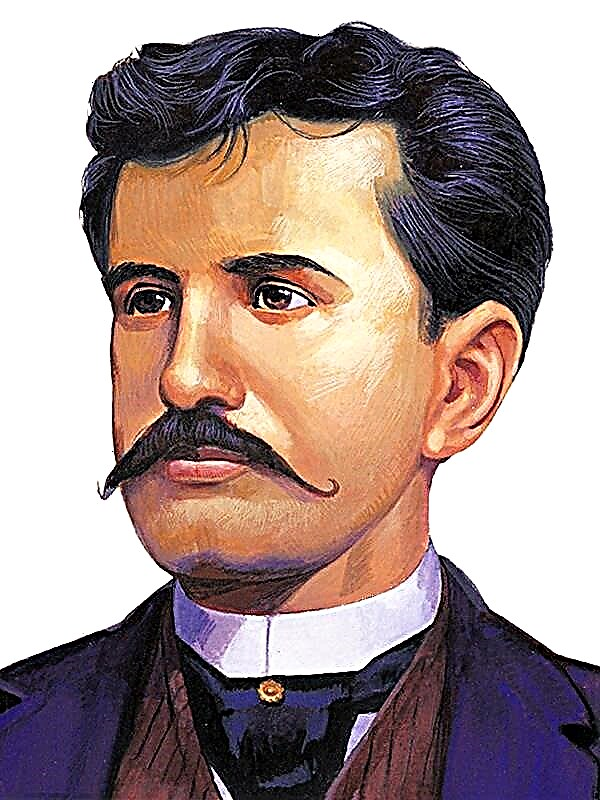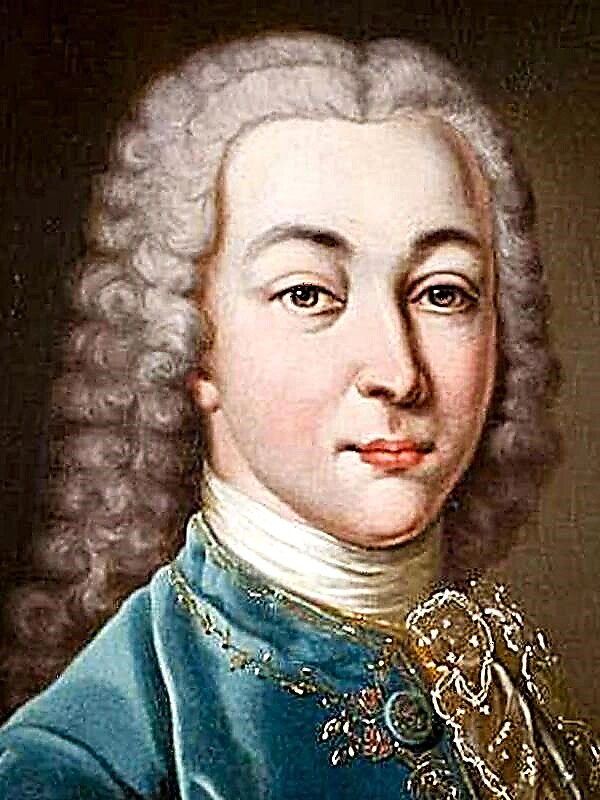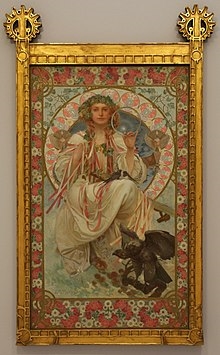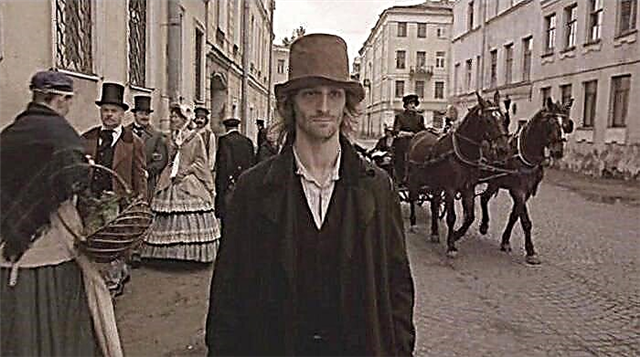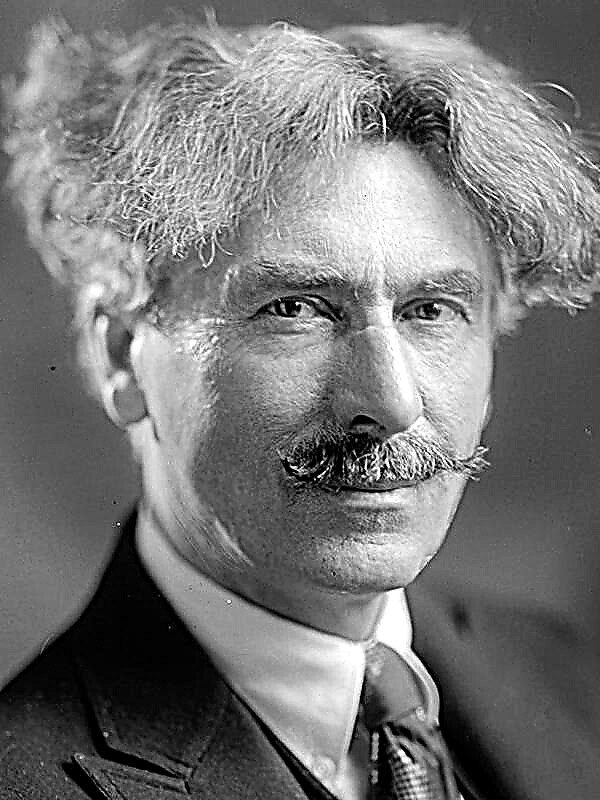“I told the truth. If anyone knows anything contrary to what is said here, he knows only lies and slander. ”
The author of these lines calls his first misfortune his own birth, which cost the life of his mother. The child grows, showing the flaws inherent in his age; “I was a talker, a gourmet, a liar sometimes,” admits Jean-Jacques. Since childhood, separated from his father, he falls under the tutelage of his uncle, and he gives it to the teachings. From the punishments of a mentor in an eight-year-old boy, early sensuality awakens, leaving an imprint on all his subsequent relationships with the fair sex. “All my life I have been lusty and silent before the women whom I loved most,” the author writes, taking “the first and most painful step in the dark and dirty labyrinth” of my confessions.
The teenager is sent to the student as an engraver; at this time, he first discovered a craving for theft. “In essence, these thefts were very innocent, since everything that I dragged from the owner was used by me to work for him,” Jean-Jacques reproaches himself. Along with addictions, a passion for reading arouses in him, and he reads everything in a row. At sixteen, Jean-Jacques is a young man "restless, dissatisfied with everything and himself, without disposition to his craft."
Suddenly, the young man abandons everything and sets off to wander. Fate brings him to the charming twenty-eight-year-old Mrs. de Varans, between them a relationship is established, which largely determined the life of Jean-Jacques. Madame de Varans convinces the young man to convert from Protestantism to Catholicism, and he goes to Turin, in a haven for converts. Having escaped after completing the ritual, he leads a careless life, walks around the city and its environs, and falls in love with all pretty women. “Never before have passions been so strong and so pure as mine; Love has never been more tender, more selfless, ”he recalls. When he runs out of money, he acts as a lackey to a certain countess. In the service of her, Jean-Jacques commits an offense, which he later regrets all his life: taking the silver ribbon from the hostess, he accuses the young servant of this theft. The girl is kicked out, her reputation is irreparably damaged. The desire to finally admit this sin is one of the reasons that prompted him to write a real confession. Mistress Jean-Jacques dies; the young man acts as a secretary in a wealthy family. He studies a lot and diligently, and before him open the way for further career advancement. However, the desire for vagrancy overpowers, and he goes back to Switzerland. Having reached the native land, he appears to Madame de Varans. She joyfully accepts him, and he settles in her house. Madame de Varans attaches him to a singing school, where he thoroughly studies music. But the very first concert, which the young Jean-Jacques dares to give, fails miserably. Of course, no one even suspects that time will pass, and the works of today's loser will be performed in the presence of the king, and all the courtiers will sigh and say: “Ah, what a magical music!” In the meantime, the upset Jean-Jacques again starts to wander.
Returning to his “mother," as he calls Madame de Varans, Jean-Jacques continues his studies in music. At this time, his final rapprochement with Madame de Varans took place. Their close relations prompt this already elderly woman to engage in secular education of the young man. But all that she does for him in this direction, in his own words, is “lost work”.
Suddenly, the manager of Madame de Varans dies, and Jean-Jacques unsuccessfully tries to fulfill his duties. Overwhelmed by good intentions, he begins to withhold money from Madame de Varans. However, to his shame, these caches are almost always found. Finally, he decides to start working in order to provide the “mother” with a piece of bread. Of all the possible activities, he chooses music, and for starters he takes money from Ms. de Varans for a trip to Paris in order to improve her skills. But life in Paris is not being set, and, returning to Madame de Varans, Jean-Jacques is seriously ill. After recovery, they, together with the "mother", leave for the village. “Here begins a brief time of happiness in my life; here peaceful, but fleeting minutes come for me, giving me the right to say that I also lived, ”the author writes. Rural work alternates with hard work - history, geography, Latin. But despite the thirst for knowledge overwhelming him, Jean-Jacques again falls ill - now from a settled life. At the insistence of Madame de Varans, he was sent for treatment in Montpellier, and on the road he became the lover of his accidental fellow traveler ...
Upon returning, Jean-Jacques discovers that he has been squeezed out of the heart of Madame de Varans by a “tall, colorless blond” with the manner of a farce handsome. Confused and embarrassed, Jean-Jacques, with a pain in his heart, gives way to his place beside Madame de Varans and from that moment looks at "his dear mother only through the eyes of a real son." Very quickly, a novice arranges life in the house of Madame de Varans in his own way. Feeling out of place, Jean-Jacques leaves for Lyon and is hired by a tutor.
In the fall of 1715 he came to Paris "with 15 louis in his pocket, the comedy" Narcissus "and a musical project as a means of livelihood." Unexpectedly, the young man is offered the position of secretary of the embassy in Venice, he agrees and leaves France. In a new place, he likes everything - both the city and work. But the ambassador, unable to come to terms with the plebeian origin of the secretary, begins to survive him and ultimately reaches his goal. Returning to Paris, Jean-Jacques is trying to achieve justice, but he is told that his quarrel with the ambassador is a private matter, because he is only a secretary, and besides, not a subject to France.
Realizing that he could not achieve justice, Russo settles in a quiet hotel and works on the completion of the opera. At this time, he finds “the only real consolation”: he meets Teresa Levasser. “The similarity of our hearts, the correspondence of our characters, soon led to the usual result. She decided that she found a decent person in me, and was not mistaken. I decided that I found in her a hearty girl, simple, without coquetry, and I was not mistaken either. I told her in advance that I would never leave her, but I would not marry her. Love, respect, upright frankness were the creators of my triumph, ”Jean-Jacques describes his meeting with a girl who has become his faithful and faithful girlfriend.
Theresa is kind, smart, smart, endowed with common sense, but strikingly ignorant. All attempts by Jean-Jacques to develop her mind fail: the girl did not even learn how to determine the time by the clock. Nevertheless, her company of Jean-Jacques is quite enough; Without being distracted by vain affairs, he works hard, and soon the opera is ready. But in order to advance her to the stage, it is necessary to have the talents of a court intriguer, and Jean-Jacques does not have them, and he again fails in the musical field.
Life requires its own: now he is obliged to provide food not only to himself, but also to Teresa, and at the same time to her many relatives, led by a greedy mother, who is used to living off her eldest daughter. For the sake of earning money, Jean-Jacques enters the secretaries to a noble nobleman and leaves Paris for a while. Returning, he discovers that Teresa is pregnant. Jean-Jacques learns from the conversations of fellow prisoners at the table dot that in France they send unwanted babies to an orphanage; deciding to follow the customs of this country, he persuades Theresa to give up the baby. The next year, history repeats itself, and so on five times. Teresa "obeyed, sighing bitterly." Jean-Jacques sincerely believes that he "chose the best for his children or what he considered such." However, the author "promised to write a confession, not self-justification."
Jean-Jacques closely converges with Diderot. Like Jean-Jacques, Diderot has “his own Nanette,” the only difference is that Teresa is gentle and kind, and Nanette is grumpy and vicious.
Upon learning that the Dijon Academy has announced a competition on the topic “Did the development of science and art contribute to deterioration or purification of morals?”, Jean-Jacques enthusiastically takes up the pen. He shows the finished work to Diderot and receives his sincere approval. Soon the composition is published, a noise rises around it, Jean-Jacques becomes fashionable. But his reluctance to find a patron for himself earns him a reputation as an eccentric. “I was the person whom they wanted to look at, but the next day I didn’t find anything new in him,” he remarks bitterly.
The need for constant earnings and shaky health prevent him from writing. Nevertheless, he achieves the production of his opera The Village Sorcerer, at the premiere of which there is a courtyard led by the king. The king likes the opera, and he, wanting to reward the author, assigns an audience to him. But Jean-Jacques, wanting to maintain his independence, refuses to meet with the king and, therefore, from the royal pension. His act provokes universal condemnation. Even Diderot, endorsing in principle an indifferent attitude towards the king, does not consider it possible to refuse pension. The views of Jean-Jacques and Didro diverge further and further.
Soon, the Dijon Academy announces a new topic: “On the Origin of Inequality Among People,” and Jean-Jacques again passionately takes up the pen. Political clouds begin to gather over the freedom-loving author, he leaves Paris and goes to Switzerland. There he is honored as a champion of freedom. He meets the “mother”: she became poor and lowered. Jean-Jacques understands that it is his duty to take care of her, but with embarrassment he admits that a new affection drove Madame de Varans from his heart. Arriving in Geneva, Jean-Jacques returns to the bosom of the Protestant church and again becomes a full-fledged citizen of his native city.
Returning to Paris, Jean-Jacques continues to earn a living by correspondence of notes, for he cannot write for the sake of money - "it is too difficult to think nobly when you think in order to live." After giving his essays to the public, he is sure that he is doing this for the common good. In 1756, Jean-Jacques left Paris and settled in the Hermitage. “The changes in me began as soon as I left Paris, as soon as I got rid of the sight of the vices of this big city, causing my indignation,” he says.
In the midst of the village dreams, Jean-Jacques is visited by Mrs. Udeto, and in his heart love breaks out - “the first and only”. "This time it was love - love in all its strength and in all its frenzy." Jean-Jacques accompanies Mrs. D? Suited for walks, ready to faint from her tender kisses, but their relationship does not go beyond the boundaries of tender friendship. Madame d? Udeto served as the prototype of Julia from the New Eloise. The novel was a resounding success, and the author even improved his financial affairs.
Forced to leave the Hermitage, Jean-Jacques moved to Montmorency, where he began to write Emil. He also continues to work on Political Establishments; the result of this hard work is the famous “Social Contract”. Many aristocrats begin to seek the favor of Jean-Jacques: the prince de Conti, the Duchess of Luxembourg ... But “I did not want to be sent to the pantry, and I did not value the table of the nobles. I would prefer that they leave me alone, without honor or humiliation, ”the philosopher says.
After the publication of the Social Contract, Jean-Jacques senses how the number of his enemies - secret and overt - is growing sharply, and he is leaving for Geneva. But even there he has no peace: his book was burned, and he himself is in danger of being arrested. All Europe casts curses on him as soon as he is not called: “an obsessed, possessed, predatory beast, wolf” ... Teresa voluntarily shares the fate of a freedom-loving exile.
In the end, Jean-Jacques settles on the island of Saint-Pierre, located in the middle of Lake Bienne. “In a sense, I said goodbye to the light, intending to shut up on this island until my last days,” he writes. Jean-Jacques admires the beauty of the island and its surrounding landscapes; “Oh nature! Oh my mother! ” He exclaims in delight. Suddenly he receives an order to leave the island. The question is: where to go? At first, Berlin was proclaimed the goal of his journey. But, he writes, “in the third part, if I only have the strength to ever write it, it will be clear why, assuming to go to Berlin, I actually went to England” ...






